The second month of your baby’s life is often associated with significant progress and development as the baby becomes more responsive and interactive, not only with you but also with the surrounding world. For a start, your baby is making progress daily by acquiring many functional benchmarks classically linked to his physical, sensory, and social prowess. In this article, we shall delve into some of the major developmental milestones that your baby will have attained in their second month and how you can help foster further growth.
Here are some of the growth and developmental milestones your 2-month-old may reach:
2 Month Old Baby Physical Development Milestones
The most important factor contributing to the physical development of your baby in the second month of their life is their growing muscle strength and coordination, which permit them to move about and explore their surroundings. Some of the physical milestones that your baby may achieve in the second month include:
Movement
Your baby should begin to have better control over their head and neck and be more able to hold their head still when lying on their back or when resting in a supported sitting position.
Your baby may also begin rolling over, from lying on his back to lying on his side or from lying on his side to lying on his stomach, and may require assistance to roll back.
Your baby will also be able to indicate the objects that are near them, for example, a toy, a blanket, or your finger, that otherwise lie within the child’s reach, and to try to put them in the mouth.
Sensory
In the second month, the vision and hearing of your baby improve, and there may also be an ability to see and hear clearly and further. Your baby can likely track objects that are moving with better precision and may turn their head and eyes to follow them.
Some other symptoms are that your baby can also recognize familiar faces of others, like yours, and may choose to look at them, depending on their brain development characteristics.
Your baby may also be more sensitive to touch and may enjoy being cuddled, massaged, or tickled.
Feeding
The feeding habits of your baby may change as, in the second month, your baby may start to take longer breaks between feedings and may drink more during one feeding session.
Your baby will be fed at intervals of 3–5 hours with an average of 4–6 ounces of breast milk or formula per feed.
Your baby may also suffer occasional gas or colic, leading to crying or fussing after taking a feed. To help your baby pass the gas, you can burp them quite often, administer gas drops, and rub their belly softly.
Sleep
Your baby’s sleep patterns may show slight improvement in the second month since the baby will be able to sleep for relatively longer times at night and will be able to have regular nap times during the day.
Your baby will sleep an average of 12 to 16 hours a day, but not longer than 4 to 6 hours at a stretch.
Your baby can also initiate some self-calming mechanisms, including thumb, pacifier, or finger sucking, or eye or ear rubbing.However, your baby may also experience some sleep regressions, which are temporary periods of disrupted sleep caused by developmental changes, growth spurts, or illness.
2 Month Old Baby Social and Emotional Development Milestones
The social and emotional development of your baby at this stage of two months is largely shaped by their increasing awareness of their surroundings and interest in what is happening in them to enable them to show their emotions and communicate their needs. Some of the social and emotional milestones that your baby may achieve in the second month include:
Smile
In the second month, your baby will respond with smile, and this will be their first true smile, which indicates their emotional development and ability to joke. Your infant is likely to laugh when he or she sees something amusing, which can be your face, a toy, or a pet, or when something is tickling him or her, which may be your touch, a feather, or a light wind.
The giggle of your little prince or princess will infect you as well; in other words, you will also laugh while watching them. You can play peek-a-boo, pull funny faces, or rasp your baby’s belly to make him laugh.
Vocalizations
In the second month, the baby is likely to make more sounds and noises and will probably have begun to coo, gurgle, and babble. This is an indication of the progression of language abilities and interest in interacting with you.
Your baby will even learn to coo and gurgle when he or she is in a happy state, is content with everything, or is thrilled about something, and will also babble to imitate your speech or when trying to communicate with you.
In addition, you can promote your baby’s vocal responses by speaking, reading, or singing to them, as well as in response to her own sounds and noises.
Interaction
In the second month, your baby will seem to be more awake and aware; he or she may respond to voices and enjoy being talked to. Your child may become more active in the tummy time 500 reposition, trying to strengthen its neck, back, and arm muscles, lift its head and chest, or push the front trunk with its hands.
Additionally, the infant is also likely to extend an arm toward known faces, including yours, as she eventually begins attempting to make contact with you by touching or grabbing. Spend time in communication with your baby, playing with them, demonstrating different things and colors, and coming into contact with new people or places.
Tips and advice for your 2 Month Old Baby Learn and Grow
- Respond positively to your baby.
- Smile, and talk to them when the bay makes sounds.
- Talk, read, and sing to your baby to help them develop and understand language.
- Spend time cuddling and holding your baby.
- Learn to notice and respond to your baby’s signals to know what they are feeling and needs.
- Lay your baby on his tummy when the baby is awake and put toys at eye level in front of him.
- Look for signs to identify when your baby is hungry
- Look for signs to identify when your baby is full
- Do not shake your baby or allow anyone else.
- Try to build routines for sleeping and feeding
- Feed only breast milk or formula to your baby. Babies are not ready for other foods, water or other drinks before they reach 6 months of age.
Conclusion
In a nutshell, month two is an incredible period as your baby reaches many milestones demonstrating his or her ability to mentally, sense, or physically interact with the world around them. Your baby grows and learns daily, and you can facilitate and foster the growth by providing a warm, secure, and stimulating environment. The second month of your baby is also a joyful time for the parents as they play with their little one and enjoy their laughing, cooing, and cuddling. Last Tip – Take care of yourself. Parenting can be hard work!
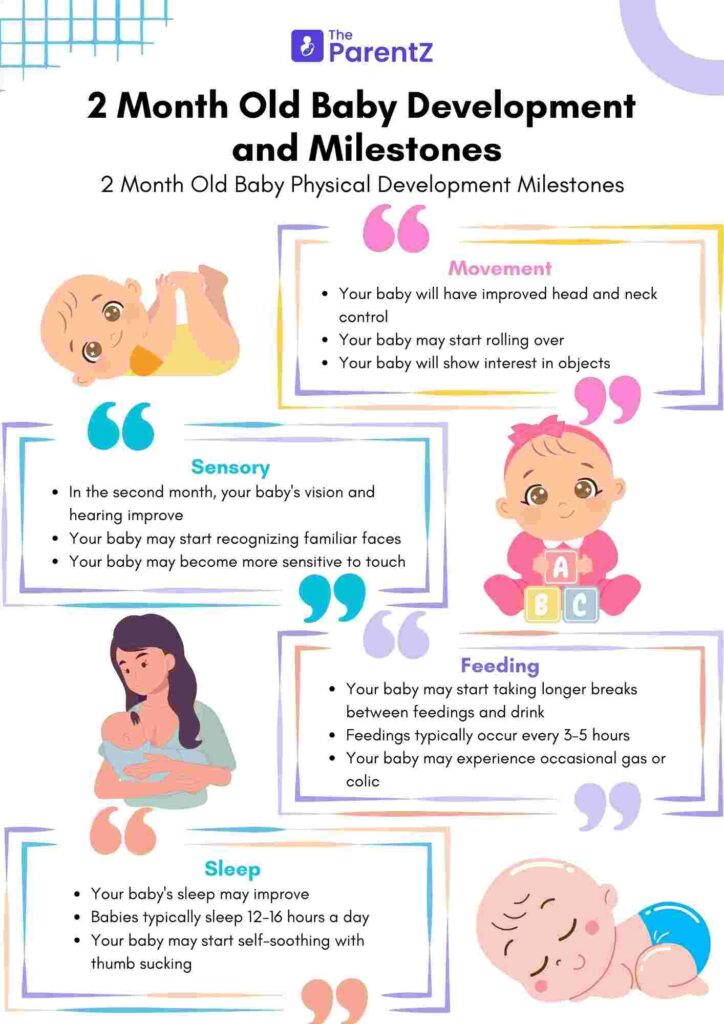
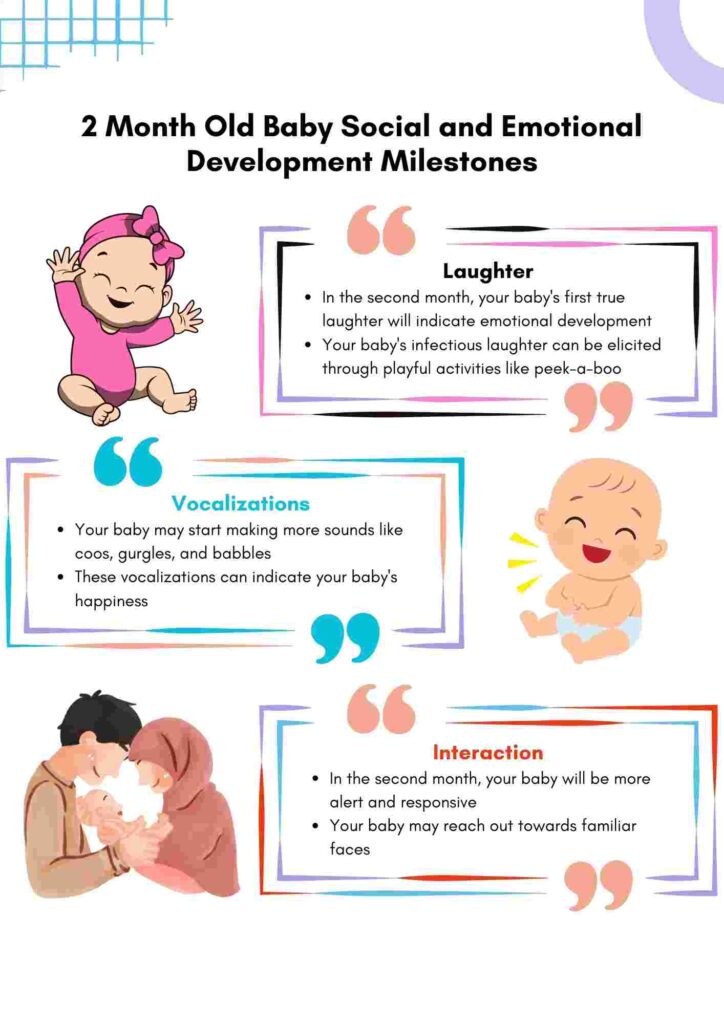
To learn about what to expect when your baby turns 3 months old, check out our guide on 3 Month Old Development Milestones.
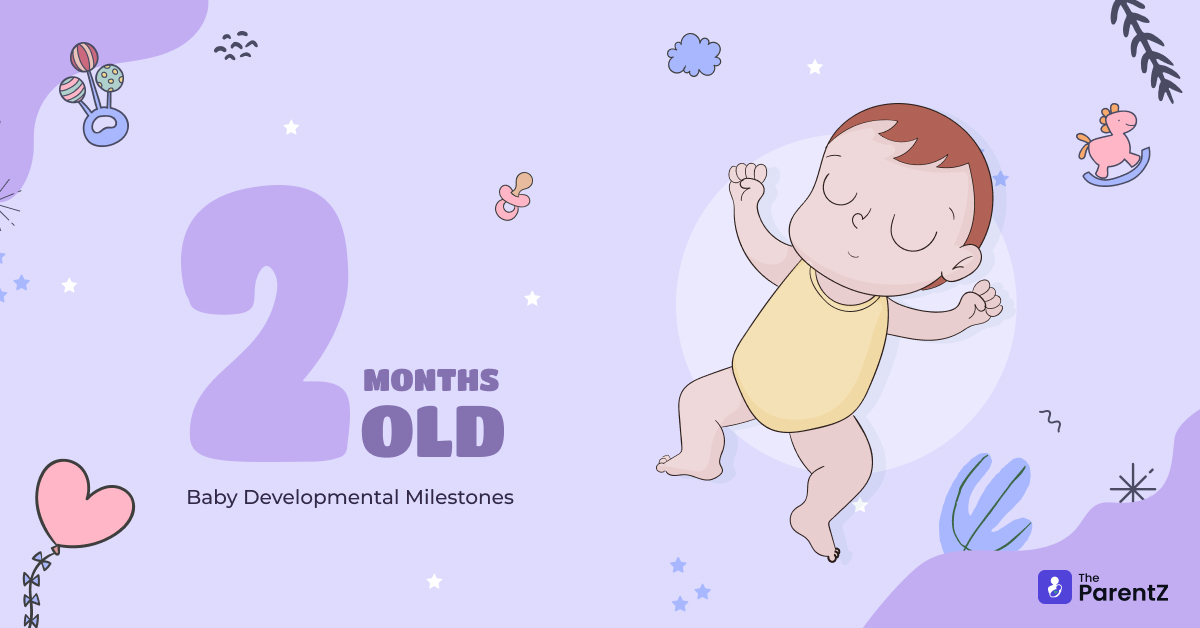




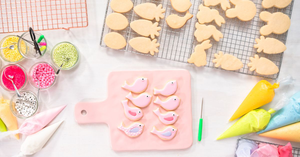
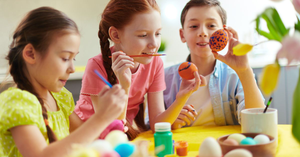

Be the first one to comment on this story.